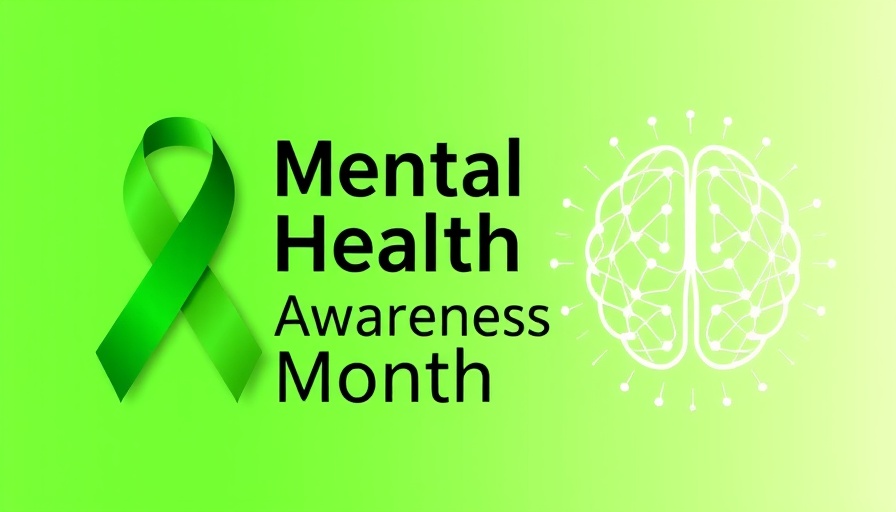
Understanding Mental Health Awareness Month: A Necessity for Employees
May is more than just the transition to warmer weather; it’s also Mental Health Awareness Month—a time dedicated to shedding light on the importance of mental health, particularly in the workplace. Acknowledging this month isn't merely a trend; it reflects a significant shift in how we view mental health and its impact on our productivity and overall well-being.
The Transformation of Mental Health Conversations
When Mental Health Awareness Month was initiated by Mental Health America in 1949, societal conversations around mental health were often stigmatized or taboo. Fast forward to today, where recent studies by the National Institutes of Health reveal that nearly 91% of adults believe that individuals with mental health conditions can lead fulfilling lives. This remarkable statistic illustrates a major societal transformation, allowing for more open discussions about mental health in all aspects of life—especially at work.
Impact on Workforce Accessibility and Support
The increased normalization around mental health has led to a surge in individuals seeking treatment. An analysis by the Centers for Disease Control and Prevention noted a jump in Americans receiving mental health support from 13.4% in 2002 to 20.3% in 2020. This rise signifies not just a willingness to talk but also an urgency for accessible services, which is crucial for the one in five people facing mental health challenges in their daily lives. Even with this improvement, many still go untreated, advocating the need for more education and resources.
Workplace Support: Changing the Game
Employers are taking notice. A study published by Benefits News highlights that 86% of large companies now provide mental health resources, a significant leap from just 31% in 1999. This shift signals a growing recognition of mental health's role in job satisfaction and productivity. By offering employee assistance programs (EAPs) and encouraging mental health days, businesses not only foster an inclusive workplace culture but also recognize that well-supported employees are ultimately more productive.
The Role of Research in Mental Health Delivery
The advancements in mental health interventions are outstanding. The Substance Abuse and Mental Health Services Administration (SAMHSA) noted an increase from 35 recognized evidence-based interventions in 2000 to over 160 today. This growth highlights the essential role that ongoing research and advocacy play in shaping an effective mental health care system, ultimately enhancing treatment options for employees in need.
The Future of Mental Health in the Workplace
As Mental Health Awareness Month continues, it’s crucial for individuals and organizations alike to remain proactive about mental wellness. This month serves as a reminder that supporting mental health is not merely an add-on to workplace culture; it must become an integral component. By continuing to challenge stigma and promote discussions, we can ensure that mental health remains a priority throughout the year, paving the way for healthier, more productive work environments.
Engaging in Mental Health Awareness Month is essential for fostering a culture of support and understanding in workplaces across the nation. Together, we can build an environment where mental health is prioritized, leading to more productive, fulfilling work experiences for everyone.
 Add Row
Add Row  Add
Add 




 Add Row
Add Row  Add
Add 

Write A Comment